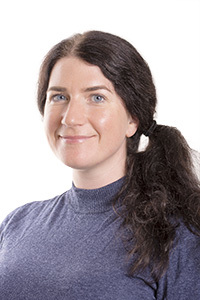The making of the reading citizen. Public debate and policy 1945-2017
Start date: 2018-01-01
End date: 2022-12-31
In contemporary Swedish political discourse, reading – and especially the reading of fiction – is regarded as something inherently positive and as a solution to many societal problems (Persson 2012; Steiner 2012; Lindsköld 2013). Since the post-war period, reading practices have become an important political tool in the ambition of making citizens more productive, democratic and able to fulfil a good life. At the same time, some readers, reading practices and genres have been perceived as problems that need to be solved through public policy actions. The overarching research question this project has addressed is the following: How is the reading citizen constructed across the three fields of public library, literature and educational policy and debate? We have investigated this construction from three analytical categories: the subject, the practice and the research that together form the reading citizen. These analytical categories are reflected in the following sub-questions that has guided the analysis:
1. How are the subject positions of the Swedish reading citizen constructed in literature, public library, and educational policy and debate?
2. What type of reading is deemed desirable and undesirable in literature, public library, and educational policy and debate?
3. How is research and scientific evidence used for underpinning arguments in the debates and discussions?
Through the project, the project members have identified and developed a research approach called critical studies of reading (Lindsköld, Hedemark and Lundh, 2020; Lundh, Hedemark and Lindsköld, forthcoming) in which reading is studied with a non-evaluative approach and where the importance of historicising current assumptions and expectations surrounding reading as an object for governing is highlighted. Lindsköld (2020) has also introduced the concept of the politics of reading useful for identifying “different discursive structures that regulate what is rational or not in a given time or place” regarding the governing of reading and readers (Lindsköld 2020, 91).
In the analysis of the Swedish Government Commission report on Literature from 2012 and the subsequent Government Bill from 2013, we conclude that there seems to be a noticeable ambiguity in the policy texts: at the same time as reading is described as an obligation of the individual towards society, it is also seen as a voluntary practice that only has positive effects if it is done without coercion (Lindsköld, Hedemark and Lundh (2020).
Hedemark has identified that in literature policy towards the end of the 20th century, parents are described as responsible for their children’s reading development (Hedemark, 2020). This can be seen as an example of possible lived effects of contemporary literature policy where the role of the parent as an educator is highlighted (see Lindsköld, Hedemark and Lundh, 2020). There is an identified movement towards the home as an arena for the politics of reading that are changing the conditions for library work. The shifts in reading policy, identified by the project, have had consequences for how the individual reader is constructed, from a subject having the potential to change society to a subject adjusting and belong to society.




